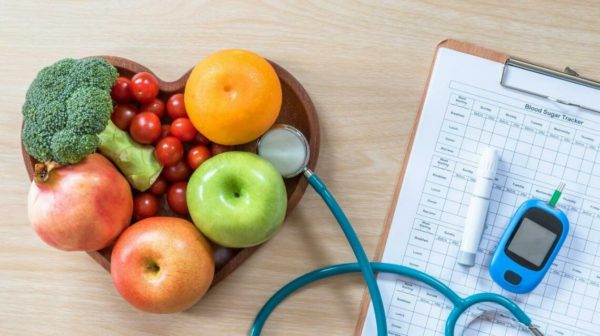
Poor eating choices and lack of physical activity are the cause of many preventable health issues, including hypertension. Hypertension is a health condition that is related to a high risk of cardiac failure and stroke. As a result, certain health approaches can help in reducing the risk of developing many health issues, including hypertension.
The importance of embracing a good diet cannot be stressed enough. To understand more about the connection between nutrition and blood pressure, this guide will provide important information. So, keep on reading.
Why is a good diet important?
A good diet ensures that your body is protected from all forms of non-communicable diseases. When you consume the right diet, your immunity level is enhanced and you are exposed to a lower risk of having all sorts of heart diseases.
Excessive consumption of trans fatty acids and saturated fatty acids, as well as higher consumption of salt and sugar, are the major contributors to hypertension.
How can nutrition affect blood pressure?
Sodium consumption
When sodium is consumed excessively, there is a high risk of incident stroke, as well as many kinds of heart diseases. When you reduce the amount of sodium in your diet, you lower the risk of developing high blood pressure.
As a result, the kind of food you eat will affect your blood pressure. The intake of Shark Tank weight loss drink can help in embracing healthy keto diets. According to studies, by reducing the amount of salt intake by 3 grams in a day, you can significantly lower your blood pressure, which could result in a 22% reduction in stroke.
The amount of sodium that leaves the body through sweat and feces is often minimal. The body often becomes acclimatized to heat very quickly. As a result, the loss of sodium through sweat can be very small over an extended period.
Potassium intake
The consumption of potassium in diets can reduce blood pressure, which can prevent cardiac arrhythmias and stroke. However, a certain level of potassium must be embraced. Indeed, the ratio of potassium to sodium ratio in the body should be kept close to 1:1. You can achieve this by consuming vegetables and fruits daily.
Maintaining healthy weight
The kind of diet you embrace can help in preventing a healthy weight. Being overweight is linked to many chronic health issues, including cardiovascular diseases. To maintain healthy blood pressure, it is important for an individual to have good eating habit that keeps the body max index (BMI) between the range of 18.5 and 24.9.
Furthermore, DASH (Dietary Approaches to Stopping Hypertension) is an approach that tackles the risk of developing hypertension and it should be embraced to lower blood pressure by 8 to 14 mmHg. This kind of diet contains vegetables, fruits, and other low-fat dairy products. Besides this, it is also important to reduce the consumption of red meat.
Consumption of Trans fatty acids and Saturated fatty acids
The intake of saturated fatty acids should be kept lower than 10% of the entire energy consumption. However, trans fatty acids should be kept below 1%. You can substitute the consumption of trans fatty acids with polyunsaturated fatty acids.
Conclusion
The prevalence of many factors that can influence blood pressure is high in many countries. In the Eastern Mediterranean Region, about two out of five adults are suffering from high blood pressure. To reduce the risk of developing hypertension and other cardiovascular diseases, it is important to reduce the intake of fatty acids and salts. Besides this, people should be educated about the connection between the kind of food they eat and blood pressure.


